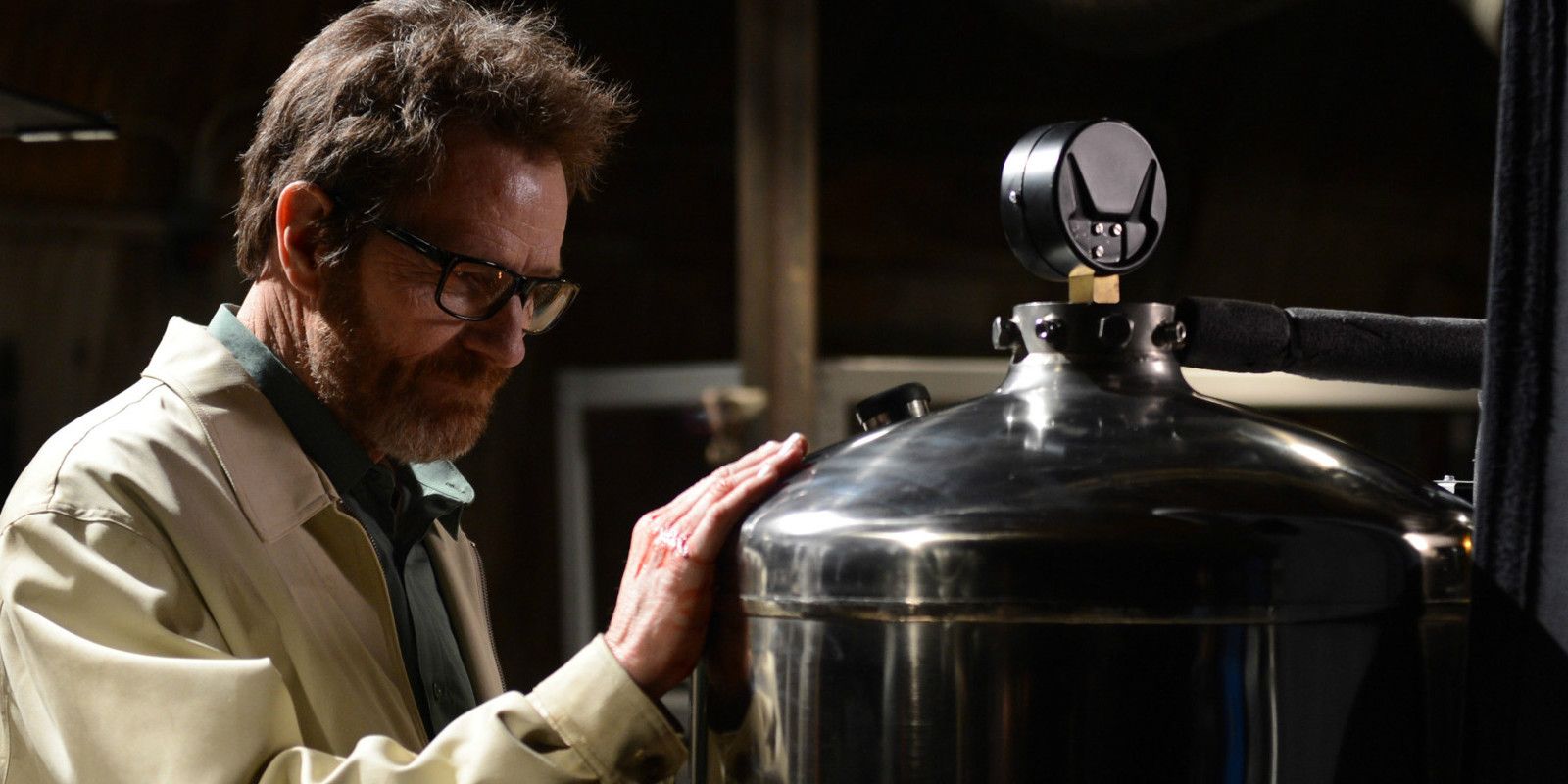Breaking Bad almost ended with season 3, which means viewers could have missed the chance to see the effects of Walter White's Heisenberg transformation. The AMC series didn't obtain stellar viewership numbers when it first premiered in January 2008, but it went on to become a highlight for the network. That wouldn't have been the case, however, if several factors worked out differently.
When Vince Gilligan first developed Breaking Bad, he struggled in getting the show made. There wasn't much interest in a series about a high school chemistry teacher who becomes a drug kingpin as a way to secretly keep his family afloat. Even after AMC gave Breaking Bad the greenlight, a few issues arose, including the WGA Writer's Strike that shortened season 1 to just seven episodes. In the end, Breaking Bad powered through, lasting five seasons and going through 2013, garnering a slew of prestigious awards along the way.
Breaking Bad season 3 saw Walter White aligning with Gus Fring by working in his underground superlab. His wife, Skyler, also learned of his illicit activities, throwing more tension into their marriage. In addition, it was a big season for Saul Goodman and Mike Ehrmantraut as the two characters became series regulars. Everything may have been different if Breaking Bad went with its original season 1 plan. Producer Peter Gould had been vocal about the creative changes and claimed that the show probably would have been canceled by season 3 had it not been for the writer's strike adjustments. Even with the changes, AMC held on to some doubt.
Netflix Kept Breaking Bad On The Air At AMC
In 2010, AMC mentioned to Gilligan that Breaking Bad season 3 could be the show's last. Following the discussion, Sony Pictures, the series' distributor, began shopping Breaking Bad around to continues its run. FX emerged as an interested party, which was ironic considering they passed on developing the series after obtaining the original rights. When AMC learned that other networks were taking the bait, the network balked at the thought and renewed Breaking Bad for season 4.
Though AMC gave Breaking Bad an extended future, Netflix served as the variable that cemented its fate. After learning of the possible cancellation, Sony reached a deal with Netflix to stream the previous three seasons ahead of the season 4. The decision was monumental in that it greatly increased viewership. By the time Breaking Bad season 5 premiered, its popularity exploded; viewership had nearly doubled compared to the previous season. If it wasn't for streaming, it's unclear if AMC would have given Breaking Bad a fifth and final season. Walt's story wouldn't have been given a satisfying conclusion, and fans would have missed out on Better Call Saul and El Camino.


